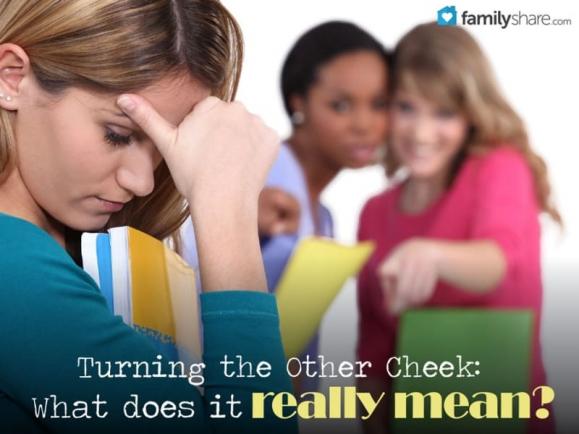
"Not again,"� you hear yourself sigh as you hang up the phone with your daughter who's just called you from school crying and saying she doesn't feel well ... again. It's the third time in the last two weeks you've had to leave work to pick her up, take her home and then trek back to the office. Your lunch breaks take longer than the hour "you're lucky to even be getting,"� but you have no choice, so you go ... again.
Once she's in the car, you suddenly get that feeling that only a mother can get and you realize what's truly prompting the early dismissals. You get up the nerve to ask your daughter a few questions that go a little deeper than the typical, "What's wrong?"� and "Are you feeling better?"� You speak to hear heart and ask her if there's anything going on at school she'd like to talk about. You go a little deeper still and tell her about the time you were in seventh grade and were being picked on by the other girls in your class for nothing more than having curly hair and how humiliating and lonely the rest of that school year was. The tears start to flow and your baby girl opens up to you. For the first time she feels like you actually do understand her after all and are even willing to listen to what she has to say. She shares with you that for the last month she's been bullied by two of her classmates and has been trying to ignore it because you told her to, "Just turn the other cheek."�
How many times has this happened to us? We hear ourselves passing along the same hurried advice we were given as kids and expect our children to get it without any further explanation. But what does it really mean when we tell our kids to, say, turn the other cheek? Are they literally supposed to give their abusers the other side of their face to slap too? Does it mean they need to ignore them and hope that they'll just go away? Or could it mean something different altogether?
When something forces our heads to turn in a different direction, the view of our surroundings changes. Perhaps what is truly meant by the adage of turning the other cheek is that we try to see things from our offender's point of view. When we couple that with the fact that behavior is a cry to have a need met, we can use the following four steps to heal many situations rather than just trying to pray them away.
1. Understand the need
Bullies don't generally pick on people because they like being mean. More often than not, they want attention and that's the only way they know how to get it. They target the nice kids - or in their eyes the weaker ones - because it's the path of least resistance. Understanding why bullies act out can help diffuse emotions and also bring about more gentle, loving and empowering resolutions.
2. Involve your kids
Problem solving with your children is a great opportunity to develop a deeper level of communication within your family and also to foster in your kids a greater sense of self-worth. By encouraging your kids to come up with solutions that best serve everyone involved, they'll be able to see how their ideas and input positively influence the outcome of a painful and potentially damaging situation.
3. Talk to the school
Once you and your child come up with a plan for addressing the issues at hand, it's a good idea to involve someone from the school in the process. Tell him or her about the situation, and your solution, and ask him to help facilitate it in the most non-confrontational way. Chances are the teachers or principal weren't even aware there was a problem in the first place, so bringing it to their attention will help them monitor the situation and further nurture the needs of each of the families.
4. Keep talking
Check in with your child at least once a week to see how things are going. This will continually remind her just how important she is to you and also let her know that no matter what you've still "got her back."�
Just like with each one of us, every bully - every person - has a story. When we take time to walk a mile in his moccasins, we become much more compassionate, loving and forgiving. And who knows, the grace we show by turning the other cheek to those who wrong us might be the lifeline that had been just out of reach ... until now.

